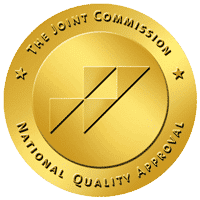
The Effects of Alcohol on Homeostasis



In 2019, the National Institute on Alcohol Abuse and Alcoholism reported that 14.5 million Americans ages 12 and older had alcohol use disorder. Alcoholism is a common problem here in the United States. Despite its prevalence, many people are unaware of the substance’s dangerous effects on the body’s natural processes.
In this blog, we will look at the following:
Homeostasis is the body’s self-regulating process of keeping itself in equilibrium. The body stabilizes the internal, physical, and chemical processes as a form of survival. These processes include:
Homeostasis is an essential function of the human body. It constantly works to maintain a balance and adjust to external conditions to stabilize. External factors processes like weather, hormones, and disease easily influence temperature. During a cold, your body will sense the low body temperature, alert your muscles to shiver, and create warmth.

Excessive alcohol consumption causes hormonal imbalances in the body. These imbalances interrupt the body’s ability to maintain homeostasis. The body will begin to regularly process the alcohol through the liver, kidneys, and lungs. Over time, this harmful process can lead to an increased risk of cardiovascular disease, certain cancers, bone disease, reproductive deficiency, and thiamine deficiency.
Alcohol abuse is common in people who suffer from sleep disorders. In fact, a sleep research study revealed that 20% to 30% of people with insomnia regularly use alcohol as a sleep aid. Despite its relaxing properties, alcohol is harmful to sleep long-term and can lead to an imbalance of homeostasis.
Excessive alcohol intake disrupts the sleep cycle, specifically the REM sleep stage. REM sleep (rapid eye movement) is when dreaming occurs and generally begins 90 minutes after falling asleep. This stage is crucial for renourishing your learning and memory skills.
When suppressed by alcohol, your sleep quality will begin to hinder daily life. Your attention span, understanding, and recollection of simple to complex information will weaken.

The human body is continuously striving to balance itself, even with alcohol present. Over time, alcohol abuse leads to a dependency on the substance, changing the brain’s natural processes. Even so, recovering from the imbalance of homeostasis caused by alcohol is possible.
Alcoholism forces the body to process the substance through vital organs, leading to long-term consequences like cardiovascular disease. Often, the body will trigger vomiting to halt the consumption.
While the body will naturally work to recover from drinking, there are ways to speed up this process. The most vital part of restoring homeostasis is abstaining from the alcohol itself. It is important for those struggling with alcoholism to seek medical advice before going cold turkey on the substance. The main ways to improve homeostasis include:
During the recovery process, you will first deal with alcohol withdrawal symptoms. These can begin within eight hours of your last drink and reach their worst at the 24 to 72-hour mark. Generally, withdrawal lasts from several days to over a month, depending on the level of dependency.
These symptoms vary but commonly include:

Some more severe symptoms include seizures and hallucinations. You should consult with a medical professional before you try to wean yourself off alcohol. This will help you do it safely, minimizing the risk of withdrawal side effects.
The brain begins to recover from alcohol abuse within the first week. It may take several months for the damage to the prefrontal cortex to fully repair.
Reaching full recovery depends on each individual’s circumstances. Achieving full recovery depends on each individual’s circumstances. Recovery from alcohol addiction is many things. It’s learning how to cope with triggers and cravings and attending medical and psychological appointments. It’s building a support system of friends and family who can offer accountability and encouragement.
Recovery is a process that takes self-control and commitment. A support group and professional help will give you the right resources and accountability necessary for overcoming drug addiction.
Soul Surgery is here to help you break free from the chains of alcoholism once and for all. Please reach out to Soul Surgery to find out more about the treatment options we provide. Call us now at 866.578.2693 to begin your journey to full recovery.







Take the first step in your journey to recovery.
"*" indicates required fields